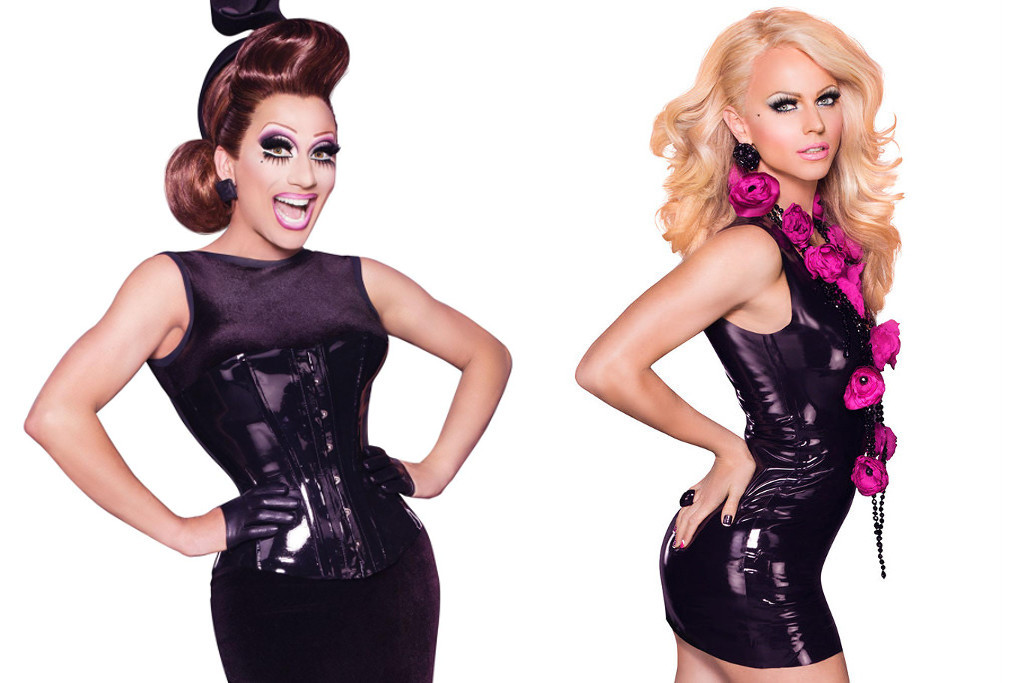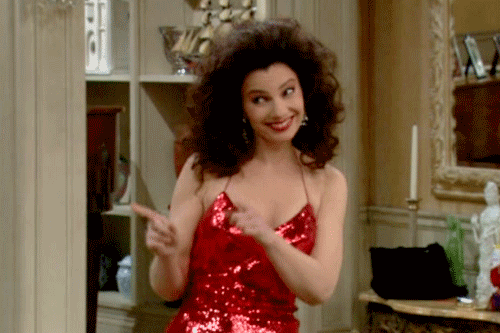The State Of Drag In 2016: An Interview With Courtney Act And Bianca Del Rio
"Drag forced me to understand who I was. I tried so hard, for so long, to fit in and be what I was supposed to be. At one point, I just ran out of fucks to give."

During an interview earlier this month, one of the world’s most famous drag queens, RuPaul, declared that his show RuPaul’s Drag Race “would never go mainstream”. Drag Race, a reality program that features drag queens in competition for a prize of $100,000, has experienced unprecedented success since its premiere season in 2009. In fact, the notoriety of the series is such that RuPaul’s recent comment might be disproved.
While drag performance has traditionally been the antithesis of all things primetime, there is no denying the seismic shift in public attitudes towards the culture. RuPaul last year launched the world’s first drag convention. Australia now has a nationally-touring drag festival and a Priscilla-themed version has kicked off in Broken Hill to much acclaim from locals. It’s a signpost for an even larger movement, as global LGBTQI communities continue the fight to make their voices heard.
As the eighth season of Drag Race wraps up in the US, we sat down with former contestants Bianca Del Rio and Junkee’s charismatic foreign correspondent Courtney Act to discuss their experiences in the ever-changing world of drag.
–
Junkee: Do you remember your first encounter with drag?
BDR: Charles Pierce wasn’t my first encounter with drag, but my first encounter with somebody who was smart about it. I’d seen drag queens, but not on that level — when they were polished, and smart, and funny and had a full act together. In the clubs at the time, a lot of people were lip-syncing and dancing, which was the thing. But he was the first polished, fabulous performer that I saw.
CA: I remember being in a production of Cinderella and I played one of the mice. As is the tradition in pantomimes, the evil stepmother was played by a man in drag. It was the most exciting role. The show was called Cinderella, but Cinderella was boring. She was pretty and lovely, but the stepmother was the lead character as far as I was concerned. She had these big fabulous costumes, and all the best lines, all the zingers, and even though she was the evil stepmother, everybody secretly loved her.
Do you think that any of those early experiences informed your style of drag today?
BDR: I think so — many young people have said that it’s considered ‘old-school’ but I just consider it what I do. You know? There’s people that sing, people that dance, there are people that are sexy, but that’s not what I do in drag. And drag now is this huge umbrella, where anyone can do anything they want.
CA: I was so inspired in the ‘90s by The Spice Girls and Fran Drescher. There’s always been something about women. Strong, female characters. I never really seemed to identify with the male characters; I always loved the female actors like Meryl Streep, Goldie Hawn, Whoopi Goldberg, Cher, Bette Midler. There was always something about those women. And they were never the women that everybody wanted to sleep with, they weren’t the sexual objects, they were always strong, and slightly camp I guess.
I think that in some relative way the things that I like to wear, Fran Drescher would like to wear – or, Fran Fine, rather – in 2016.

Do you think the purpose of drag is the same as it ever was, or do you feel it growing, or changing?
BDR: Each person has a different mission for what they’re doing. Politics is usually something I stay away from. But I do find it fascinating, and anytime you’re in drag there’s huge attention brought to yourself. I think it’s great when they have a good cause. We call Lady Bunny [a New York-based drag queen] Bernie Sanders’ wife because it’s all she’s doing on Facebook; she’s campaigning and talking about it. The majority of Bunny’s conversations are either political, or about somebody shitting or some man’s dick. That’s just all Bunny. It’s not really what I’m about. Courtney’s very political — and Courtney just likes to talk too… everybody has a different outlook.
CA: I think that drag has many forms and many functions. But there is still always something political about it. Someone like Lady Bunny — she’s so political I’m worried she’s going to burst a blood vessel. Bunny is probably one of the reasons why I’ve become so fascinated in American politics. I followed her, started reading her posts, and I was like ‘huh, yeah, she’s got a point’. The first Junkee video that I did explaining the American primaries, I think it’s had, like, 1.3 million views or something. Both Americans and Australians loved the video, because they were surprised that an Australian drag queen could explain a complex political process in a way that they understood.
Do you find that dealing with, or reacting to, hateful comments is all part of the job?
BDR: Well, if it’s not your cup of tea, it’s not your cup of tea. How many times have you been at an event and someone comes in with a megaphone, telling you that you’re doing the wrong thing… and they actually change your life? How many people have stopped, put down a drink at Mardi Gras and said ‘they are so right’?
I think that if it’s not your thing, stay the fuck away. You know? And I’m always suspicious of a large group of men, who all come to New Orleans for Mardi Gras, and stay in a room together, to come preach about Jesus… there are some issues there, I have to say.
You’ve never seen a gay person peeking into a straight club, looking in the window saying ‘what are they doing?’ But, straight people love being a part of what the drag queens are doing. And if you want to, you’re welcome — but there’s also a way to behave. And I think that that’s where people lose their minds.
CA: I don’t get them often in real life but I certainly get them online. There is a certain kind of person who actively comments, and who negatively comments, on social media. Sometimes I want to retort back. I try not to, and if I do I try to do it in an educational way — because I think that when you reply to the hate comments, the people that do love you see you giving that attention. Like, they’re giving you love, and you’re not replying to them, and then someone who leaves a horrible comment gets a response and they’re like ‘well, wait — is that what we have to do to get a response?’
What does drag mean to you?
BDR: For me in particular, it’s the ticket to get away with murder. If I don’t wear a wig, if I don’t wear makeup, I’m just called a nasty queen; I wear hair and makeup, they call me hysterical. I come from a theatre background, so I’ve always loved wigs and costumes and makeup and stuff so it’s always been part of it. It’s kind of been my armour.
It’s kind of fun to get to get to do the show and all of the fanfare, but by no means do I believe it. I don’t want to be a girl; I don’t have any ladylike tendencies. I’m a clown. And when I’m a clown, you’re welcome at the circus.
CA: I guess drag forced me to understand who I was, independent of what society said I should be. I tried so hard, for so long, to fit in and be what I was supposed to be, and at one point, I just ran out of fucks to give, I guess. It’s beyond performance for me; it’s definitely part of my identity. I really enjoy being Courtney. I think Bianca’s different, in that way. I think she puts on a costume and that’s her work uniform. Whereas for me, I think it’s a bit more woven in to my gender identity.
Is there anything you know now that you wish you knew when you first started doing drag?
BDR: That drag is a trap! I didn’t plan on doing it this long, so it’s kind of weird that that much time has passed. Kind of surreal. You don’t realise that that many years have passed, and that it was going to be such a big part of my life. I’m not mad with the way it turned out, but I really didn’t think that at that time I would be doing it this long.
Courtney Act: As a young queer person, growing up as a male-bodied person there’s all of these examples of the male aesthetic that are sort of forced on us. I know that women have the exact same thing with beauty magazines, and these unrealistic beauty standards and expectations and just in general, like – what is put forward to us as examples of what we should be. There’s a lot of pressure. We think that we have to conform to that. Maybe it’s just a part of getting older, but I slowly sort of realised as the years go on that I don’t need to be any of those things, that I just need to be me. That’s kind of the constant reveal. It seems like every day there’s another.
Bianca, what’s something we might not know about Courtney? And Courtney, what’s something we might not know about Bianca?
BDR: She has the worst gas ever! She will clear a room immediately. This pretty little thing has the most lethal farts ever. That’s what the world needs to know.
Another thing is that, she’s just as beautiful as she looks; she’s that as a person. She’s great. She’s one of my dear friends. Through this process we’ve become really close.
CA: I’m gonna go out on a limb and say that she said that I fart a lot. I don’t smell! It probably goes without saying but no man can resist the charms of Bianca Del Rio, not in a sexual way — but in a drinking way. If you go out, it doesn’t matter how strong your will is… you’re going to have a good time. You have no choice.

–
Eilish Gilligan is a musician and freelance writer from Melbourne, Australia. She loves all things pop culture and tweets at @eilishgilligan.